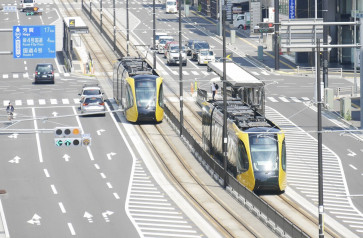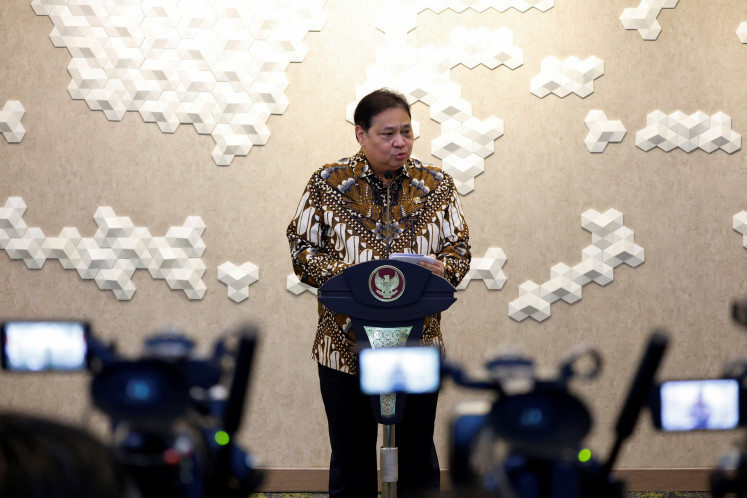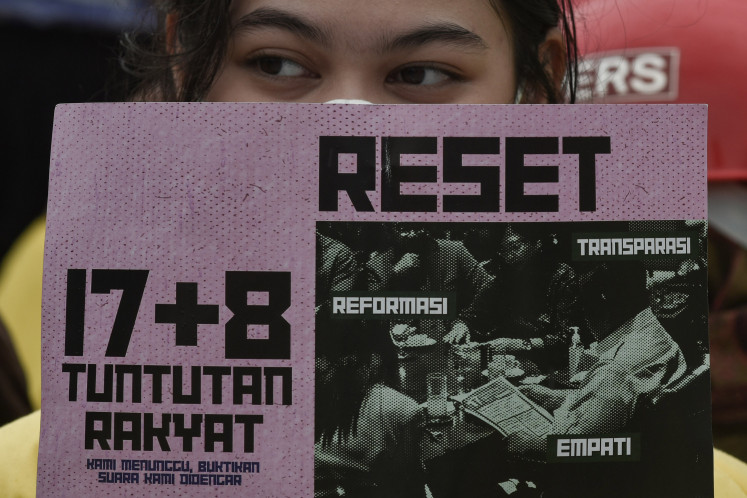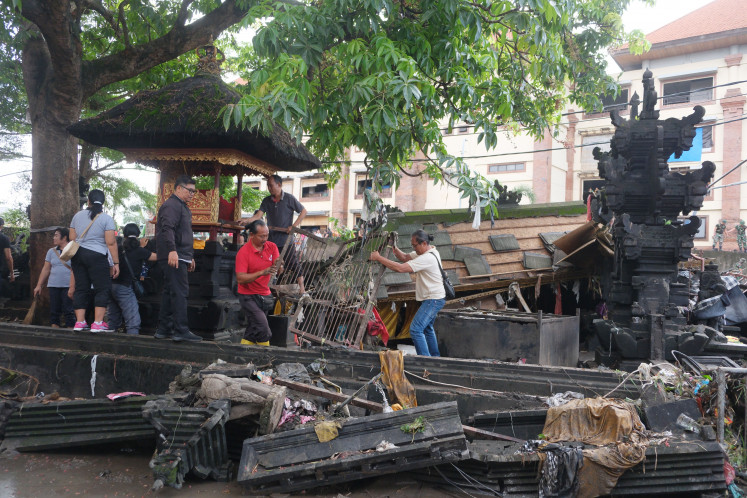Popular Reads
Top Results
Can't find what you're looking for?
View all search resultsPopular Reads
Top Results
Can't find what you're looking for?
View all search resultsInnovation, integration, equitability: ‘Tol Laut’ needs more
The maritime highway program to boost sea connectivity and cut shipping costs, dubbed "Tol Laut" (Sea Toll Road) by the administration of President Joko “Jokowi” Widodo, has yet to encourage regional economic development and would take innovative measures to realize its full potential, stakeholders say
Change text size
Gift Premium Articles
to Anyone
The maritime highway program to boost sea connectivity and cut shipping costs, dubbed "Tol Laut" (Sea Toll Road) by the administration of President Joko “Jokowi” Widodo, has yet to encourage regional economic development and would take innovative measures to realize its full potential, stakeholders say.
“We have yet to see the Tol Laut program boost participation of local economies and thus, we will need to identify the problems in business, logistics and other sectors,” Wihana Kirana Jaya, the Transportation Ministry's economy and investment senior adviser, said on Wednesday at a discussion in Jakarta.
Wihana added that the maritime highway program needed increased participation and integration with local commodities businesses, ports and outlying regions to encourage regular shipments and cut down on distribution costs — the whole point of the "sea toll road" program that President Jokowi announced early in his presidency.
A 2018 study by the 10 November Institute of Technology (ITS) estimates that the program could increase domestic shipping volume to 300,000 tons to contribute Rp 2.5 trillion (US$ 176.2 million) to Rp 3 trillion in “direct impact” on the Indonesian economy.
Wihana said that the program was intended to boost economic growth and equitable development, but the government remained more focused on maritime development in western Indonesia.
To illustrate, he rattled off a list of ports: Jakarta's Tanjung Priok, Tanjung Perak in Surabaya, Belawan port in Medan and Makassar port in South Sulawesi.
"The [maritime] industry is still centered on the island of Java,” Wihana stressed.
The government needed to consider implementing digital solutions in combining artificial intelligence (AI) and big data, as well as infrastructure, to reduce logistics costs and further optimize the maritime highway concept, he said.
Researcher Muhammad Halley Yudhistira of the Institute for Economic and Social Research (LPEM), the University of Indonesia's economic think tank, presented a similar view at the discussion, saying that the maritime highway program had yet to reduce prices in eastern Indonesia.
“The majority of the economic benefits provided by the program are being enjoyed by industry players,” Halley said, adding that some distributors dominated several markets, which had resulted in a lack of competition and made it difficult to reduce prices.
According to an LPEM study released on Oct. 2, the maritime highway program has reduced shipping costs by 30 to 50 percent in select areas, but had not reduced logistics costs from ports to remote regions.
Economist Fauziah Zen of the Economic Research Institute for ASEAN and East Asia (ERIA) said that the government needed to take innovative measures as well as develop modern ports in eastern Indonesia.
She said that ports in the eastern provinces held immense potential, as they could serve as hubs of international trade.
“As many as 4.3 million TEUs [20-foot equivalent units] of international trade pass close to the ports of Bitung in North Sulawesi, while as many as 4.2 million TEUs pass close to the ports in Ambon and 4.1 million TEUs in Merauke,” said Fauziah. She added that international shipping routes with high sailing frequency lay close to Sorong in West Papua, Ambon in Maluku, and Bitung.
Fauziah said that the government would need to follow several industry trends to develop a port into an international hub port.
“In the future, port management should implement green regulations, particularly on energy security, economic efficiency and the environment. We should also provide value-added service, as in Singapore for example, as their ports do not provide just [conventional] port services,” she said.
Echoing the Transportation Ministry's Wihana, Fauziah added that the government needed to modernize the country's ports by using big data and AI. She also added that ports should have separate cargo and passenger terminals, and that the government use market mechanisms to solve port congestion and simplify the port management structure so they would be more attractive to international trade.










